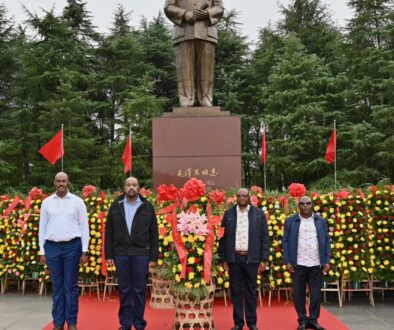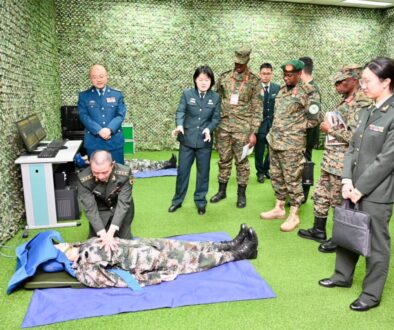UNHCR seeks aid to fund Uganda refugees legal fees

CAPTION: Bernd Brunner (R), the Managing Director of the Austrian Development Agency (ADA) after signing a memorundum of understanding with Matthew Crentsil (L) the UNHCR Representative to Uganda in Kampala July 31st, 20254. (Courtsey photo).
By Our reporter
KAMPALA – The United Nations High Commissioner for Refugees (UNHCR) is in talks with Austria to secure funding for legal aid services aimed at supporting refugees entangled in the justice system in Uganda. According to available data, over 5,156 refugees are currently incarcerated across various detention centers in the country. However, many lack access to legal representation, raising concerns about fair trials and the timely adjudication of their cases.
As Crentsil noted, many refugees do not have the legal knowledge and financial capacity to effectively present their cases and demand their rights. Many are traumatized, disoriented, and physically and emotionally vulnerable. Over the years, legal aid for refugees has been primarily offered by non-governmental organizations, with UNHCR partners and the Refugee Law Project (RLP) of Makerere University being key providers.
These organizations offer a range of services, including legal advice, representation, and assistance in navigating the asylum process and accessing other rights. However, dwindling refugee funding has severely strained the UNHCR’s capacity to provide such critical services. The agency has so far secured only 25 percent of the funding required to run its entire refugee response program in Uganda.
This financial shortfall comes at a time when the refugee population continues to rise, with projections indicating the number could reach 2 million by 2026. Mathew added that the agency is hopeful external support, especially from Austria, which they are courting, could help bridge the funding gap and ensure refugees receive fair and timely legal representation.
Local authorities in Kansanga have reported a noticeable rise in crime within refugee communities, with many of the incidents occurring among the refugees themselves. Common cases include drug abuse, thefts, domestic violence, and other forms of interpersonal conflict. Most these challenges often attributed to unemployment, trauma, and lack of meaningful engagement.
Frank Walusimbi, UNHCR associate communication officer, noted that beyond legal aid, the agency is also exploring ways to economically empower refugees as a preventive measure against crime and also make them self-reliant at the same time. Walusimbi added that UNHCR and its partners initiated empowerment programs focused on equipping refugees with vocational skills and supporting small-scale business ventures. These initiatives aim to provide sustainable alternatives to crime by helping refugees become self-reliant and productively engaged.


